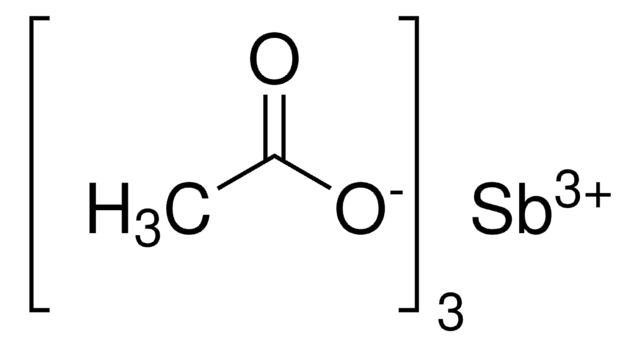452343
Antimony
beads, ≤5 mm, low oxide, 99.999% trace metals basis
Sinónimos:
Antimony black, Antimony element, Stibium
About This Item
Productos recomendados
Quality Level
assay
99.999% trace metals basis
form
beads
resistance
41.7 μΩ-cm
particle size
≤5 mm
bp
1635 °C (lit.)
mp
630 °C (lit.)
density
6.69 g/mL at 25 °C (lit.)
SMILES string
[Sb]
InChI
1S/Sb
InChI key
WATWJIUSRGPENY-UHFFFAOYSA-N
¿Está buscando productos similares? Visita Guía de comparación de productos
Application
For use with
Storage Class
11 - Combustible Solids
wgk_germany
WGK 3
flash_point_f
Not applicable
flash_point_c
Not applicable
Elija entre una de las versiones más recientes:
Certificados de análisis (COA)
¿No ve la versión correcta?
Si necesita una versión concreta, puede buscar un certificado específico por el número de lote.
¿Ya tiene este producto?
Encuentre la documentación para los productos que ha comprado recientemente en la Biblioteca de documentos.
Los clientes también vieron
Nuestro equipo de científicos tiene experiencia en todas las áreas de investigación: Ciencias de la vida, Ciencia de los materiales, Síntesis química, Cromatografía, Analítica y muchas otras.
Póngase en contacto con el Servicio técnico









